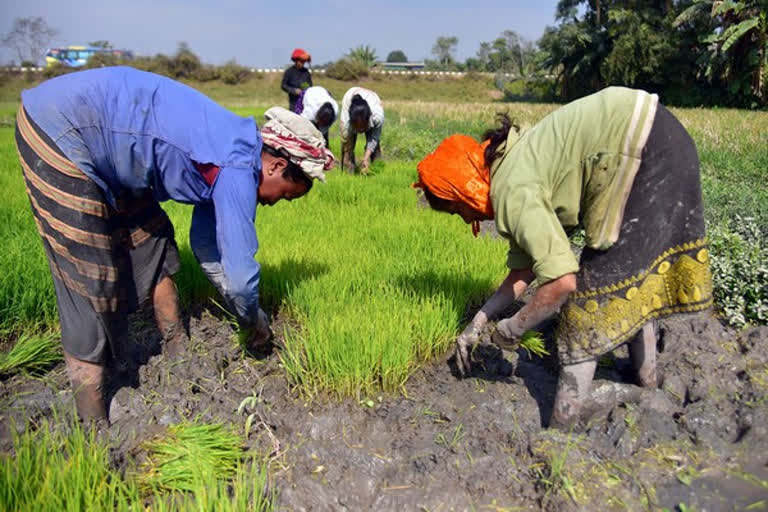New Delhi: Paddy sowing continues to lag as area under the key kharif crop was lower by 8.25 per cent at 343.70 lakh hectare till last week of the ongoing kharif season, according to the agriculture ministry. Area sown to pulses and oilseeds also remained slightly lower, while the overall area covered under all kharif crops showed a lag of 25.52 lakh hectare at 1012.99 lakh hectare till August 18 of the 2022-23 kharif season, it said.
Paddy is the main kharif crop, sowing of which begins with the onset of southwest monsoon in June. Over 80 per cent of the country's total rice production comes from the kharif season. According to the ministry's latest data, paddy was sown in 343.70 lakh hectare till August 18 of the ongoing kharif season as against 374.63 lakh hectare in the year-ago period. Less area was reported from Jharkhand, West Bengal, Bihar, Odisha, Uttar Pradesh, Chhattisgarh, Madhya Pradesh, Telangana and few other states due to shortfall in monsoon rainfall.
In case of pulses, total sown area was down by 7.08 lakh hectare at 125.57 lakh hectare till August 18 of this kharif season from the year-ago period.
The acreage of tur, urad, moong, and kulthi showed a slight lag when compared to the year-ago period, the data showed. There was slight lag in sowing of oilseeds till last week as farmers have sown the crops in 184.42 lakh hectare as against 185.85 lakh hectare in the comparable period.
However, acreage of coarse cereals remained marginally higher at 172.78 lakh hectare till August 18 of this kharif season, as against 167.42 lakh hectare in the year-ago period.
Among cash crops, area sown to sugarcane remained flat at 55.32 lakh hectare, while that of cotton acreage was higher by 7.75 lakh hectare at 124.27 lakh hectare and jute/mesta at 6.94 lakh hectare in the said period. Agriculture Minister Narendra Singh Tomar, while addressing the 11th National Seed Congress in Gwalior, stressed on the need to address the challenge of changing climatic conditions.
"Now that the climatic conditions are changing, this challenge has to be dealt with. Now there should be self-sufficiency in pulses and oilseeds also," an official statement quoted Tomar saying at the event. He said the government is working on a mission mode to make India self-sufficient in pulses and oilseeds, but along with policies and funding, the invention of seeds should be such that it increases productivity and takes the country towards self-reliance.
Agricultural scientists have a huge responsibility and have to do more work, he added. (PTI)



